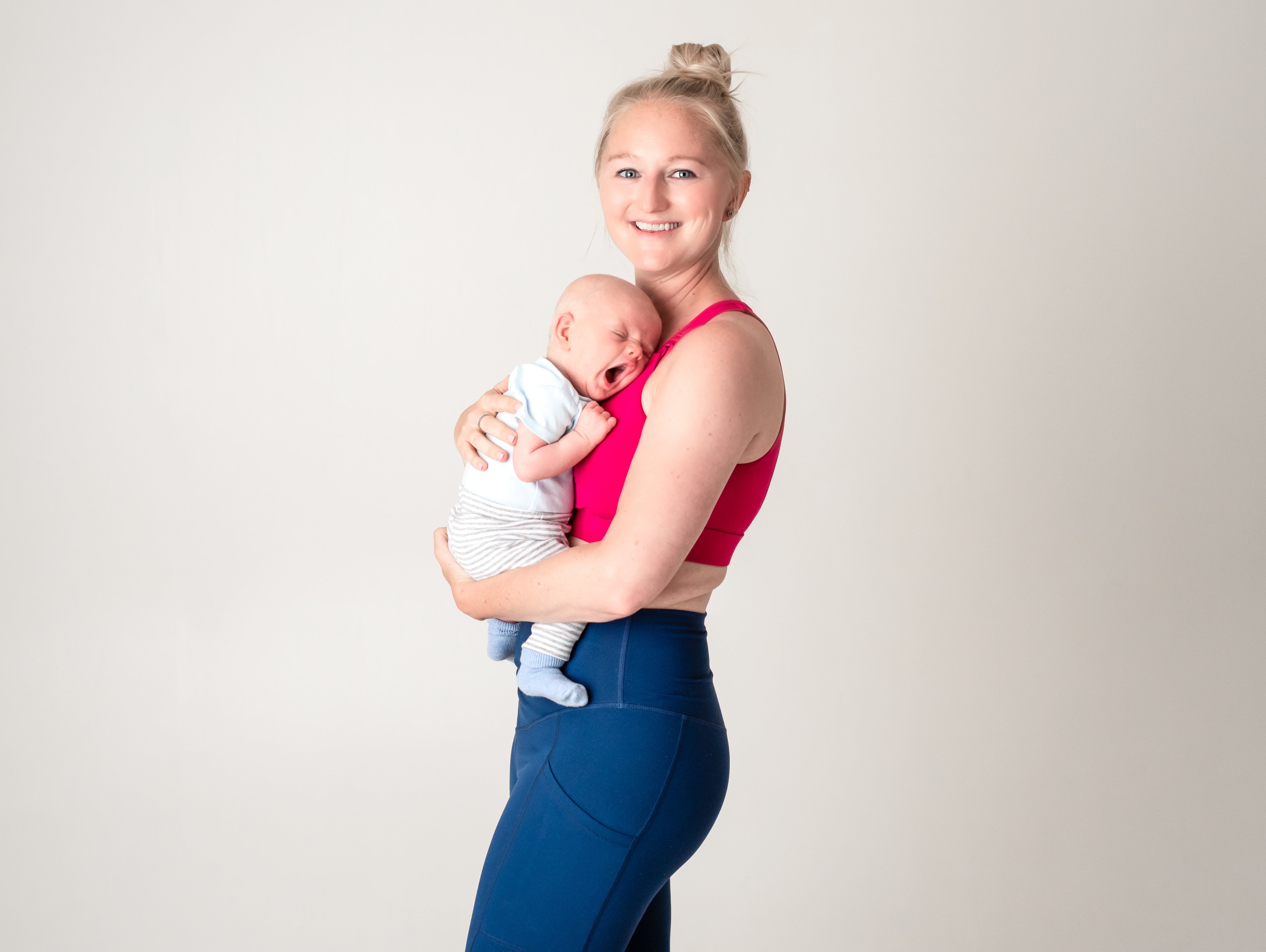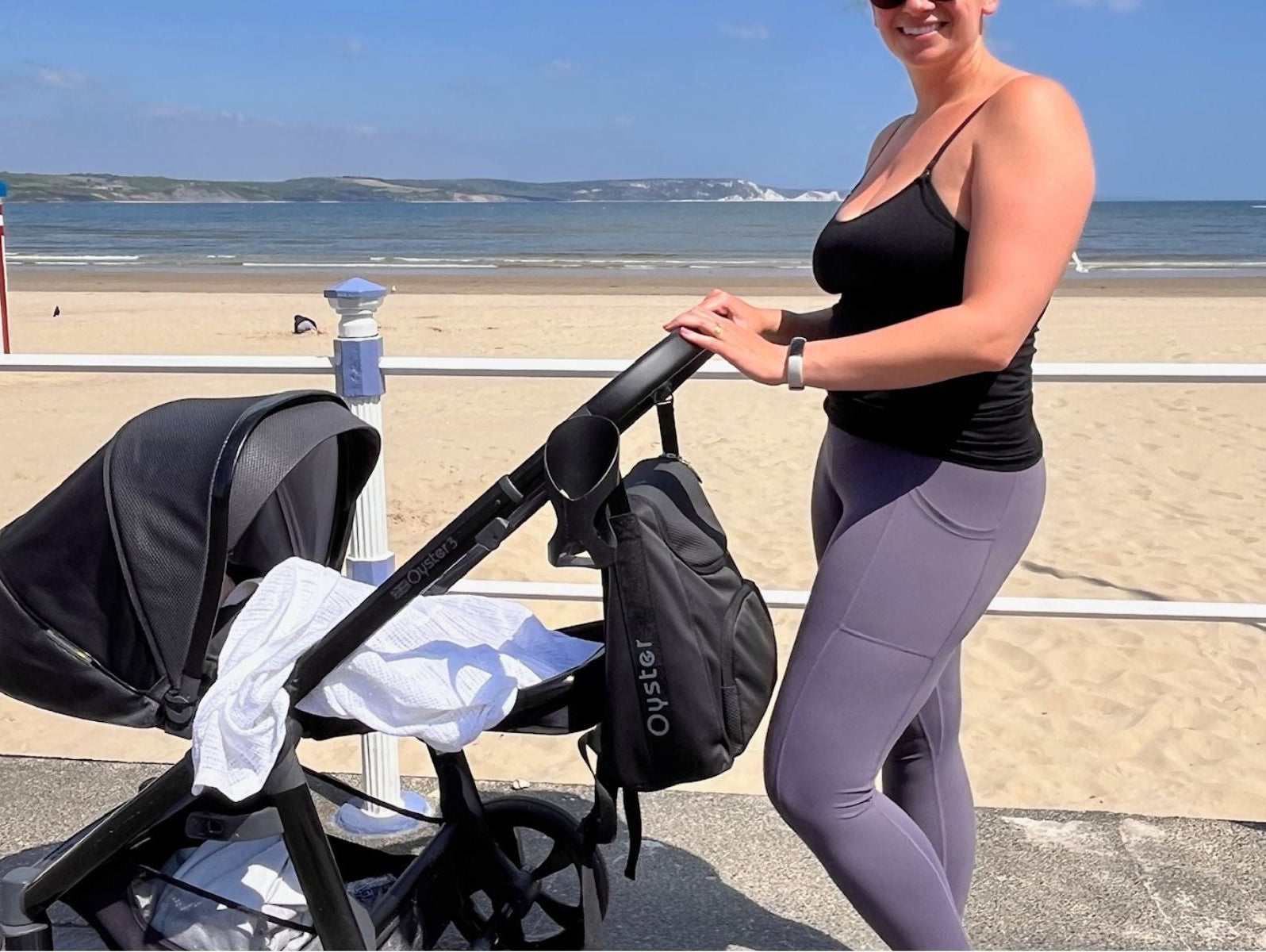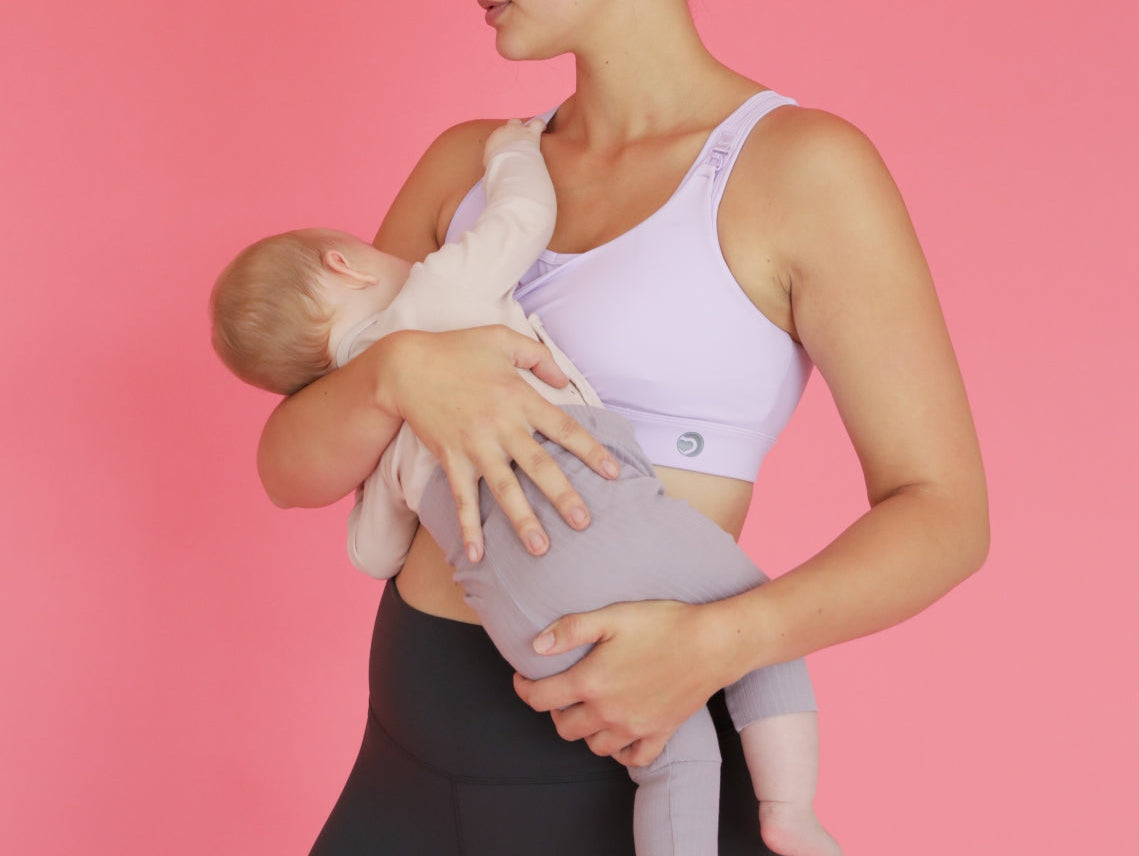Caesarean births account for 1 in every 4 births that happen in the UK, and is major abdominal surgery. Prioritising your recovery after a caesarean birth is so important, but can often be overlooked whilst adapting to life with a new baby. So here are six ways that you can help yourself recover from a Caesarean birth.
First few days
You’ll be in hospital for 2-4 days depending on the hospital you give birth in and how straight forward your birth was. You can expect to feel sore and uncomfortable in those first few days, but will be offered pain medication to help with this.
Try to use this time to prioritise your rest and recovery, ask for help whenever you need it (you have that red button for a reason). Getting in comfortable positions to feed your baby can be tricky, so always ask for the midwives’ support with this so you leave hospital feeling confident.
Some other top tips for the early days:
- Making sure you have everything you need in arms reach.
- Ask people to pass the baby to you when possible as you want to be avoiding heavy lifting in the beginning.
- Stay hydrated, this aids recovery and flushes out toxins from your body.
- Take a stool softener to help with your first poo.
- Pop a pillow over your scar when you want to go to the loo, sneeze, laugh and to put your seat belt over when travelling in a car.
- Keep your scar clean and dry.
- Wear high waisted pants and loose clothing so your scar isn’t irritated.
Moving your body
You’ll be encouraged to move within the first 24 hours, and your natural instinct will most likely be to stay hunched over whilst you shuffle to the loo. You might be feeling nervous about your scar, like standing up straight could pop some stitches, but they are really robust and designed for movement so as soon as you feel comfortable enough, slowly start to stand up straight to provide a gentle stretch in your abdomen to avoid the scar sticking or retracting.
As a new parent you will spend a lot of time sitting, looking at your baby, feeding and hopefully eating snacks. So as soon as you feel confident enough try to incorporate some gentle stretches which take you out of your seated and often hunched over position. Things like a chest extension and side rotations are great ways to encourage gentle movement. Listen to your body, you will know if it’s too much.
Pelvic Floor Exercises
As soon as you have given birth you can do pelvic floor exercises as long as you don’t have a catheter in still. That’s right, regardless of the type of birth you have, your pelvic floor muscles have been pushed to the limit whilst you have carried your baby so it’s important to get going with these as soon as you can. You can start doing them whilst lying down, and gradually build them back up. Make sure you are doing them correctly, and if you have any concerns about your pelvic floor health there are postnatal physios who specialise in recovery after birth so don’t suffer in silence.

Breathwork
Learn how to breathe again, which sounds strange but our breathing changes during pregnancy due to the expansion of the uterus and increase in blood volume restricting our diaphragm. So taking some time each day to breathe in fully and deeply to the bottom of your lungs is mega important. This not only stimulates our deep core, it also puts us into our rest and digest state in our nervous system which is where we need to be to produce oxytocin, the hormone that is responsible for feeding and bonding with our baby.
Gradually reintroducing exercise
It’s far better to gradually reintroduce certain types of exercise, than do nothing for 8 weeks and hit the crunches and planks straight away which could set you back in your recovery. In addition to this, when we know exercise has so many benefits on our mental health, it makes sense for any new mum to focus on doing something that makes them feel stronger both physically and mentally.
Not everyone is good at resting, and the thought of it can be quite frustrating if you are usually an active person. Everyone is different, so it’s important to tune in and listen to your body. Walking and beginner level core work is a good starting point when you feel ready.
There are so many amazing online postpartum exercise classes, which you can fit in around your day. An alternative to this would be to seek out local postpartum exercise classes, this is a great way to meet other new mums, it gets you out of the house and you can take your baby with you.
Signs you might be overdoing things
If you push yourself too far usually your scar will tell you, it might become sore or tender, it might leak or weep, or visually you can see a change in your scar. You will also have lochia which is blood coming out of your vagina which is from the uterus as it retracts back. If you notice a change in the amount of lochia, usually an increased volume or more clots than before this could also be a sign you’ve overdone it. Always contact your health care provider if you notice any changes, don’t ignore it.
Take your time, listen to your body, and if you have some days where your frustrated you’re not where you thought you would be by any given date – remind yourself of the following things:
- You grew a human in your amazing body.
- You gave birth.
- Your body is working so hard to heal the 5 layers affected from the surgery on very little sleep.
- You are nothing short of a badass and you will get there in time, be kind to yourself.
Written by Luce Makepeace – A hypnobirthing coach and founder of Proud Birth, specialising in supporting women prepare for their birth after a caesarean



